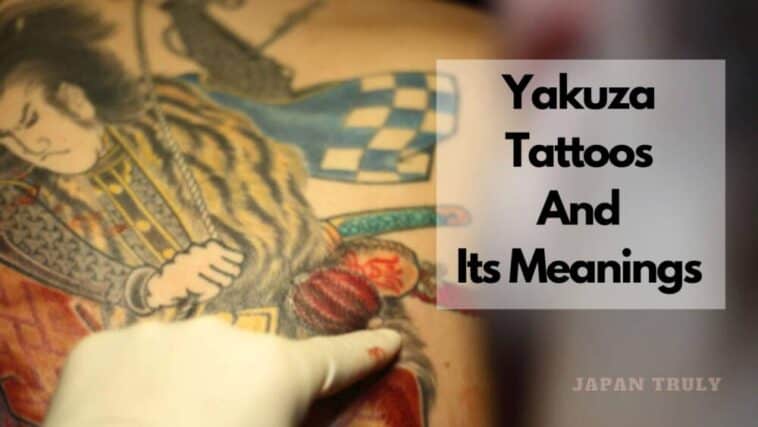Curious about Yakuza tattoos? Here’s everything you need to know about Yakuza tattoos and its meanings. Check it out!
Yakuza tattoos, an integral part of the Japanese criminal underworld, hold a rich tapestry of meanings. Embedded in tradition and mystique, these tattoos serve as visual markers of identity and status within the Yakuza hierarchy.
Yakuza tattoos have a profound historical backdrop. Stemming from the ancient art of irezumi, these intricate designs became a cultural symbol, reflecting the Yakuza’s unique blend of honor and criminality.
Page Contents
Different Yakuza Tattoos and Their Meanings
Yakuza Dragon Tattoos
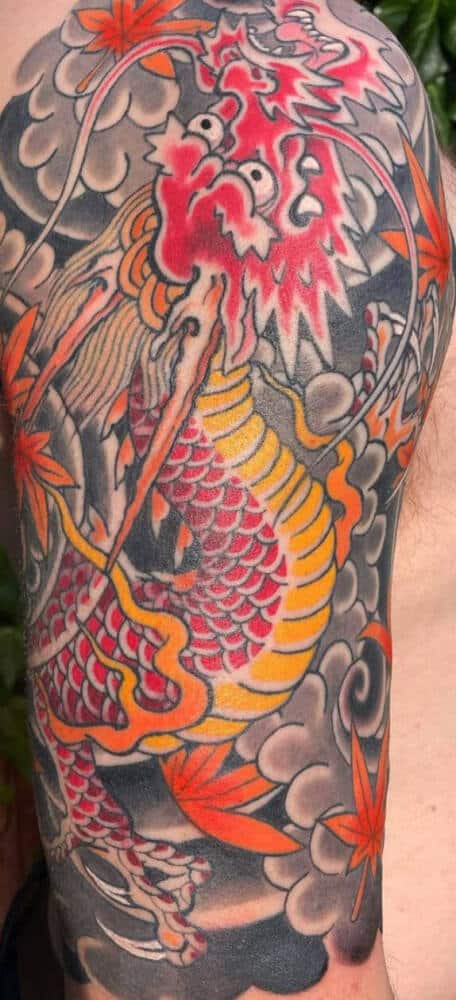
Symbolizing strength, power, and protection, dragon tattoos are a powerful emblem within Yakuza culture. The dragon, a mythical creature, embodies the Yakuza’s status as a formidable force, serving as both a guardian and a representation of their dominance in the criminal underworld.
Yakuza Koi Fish Tattoos
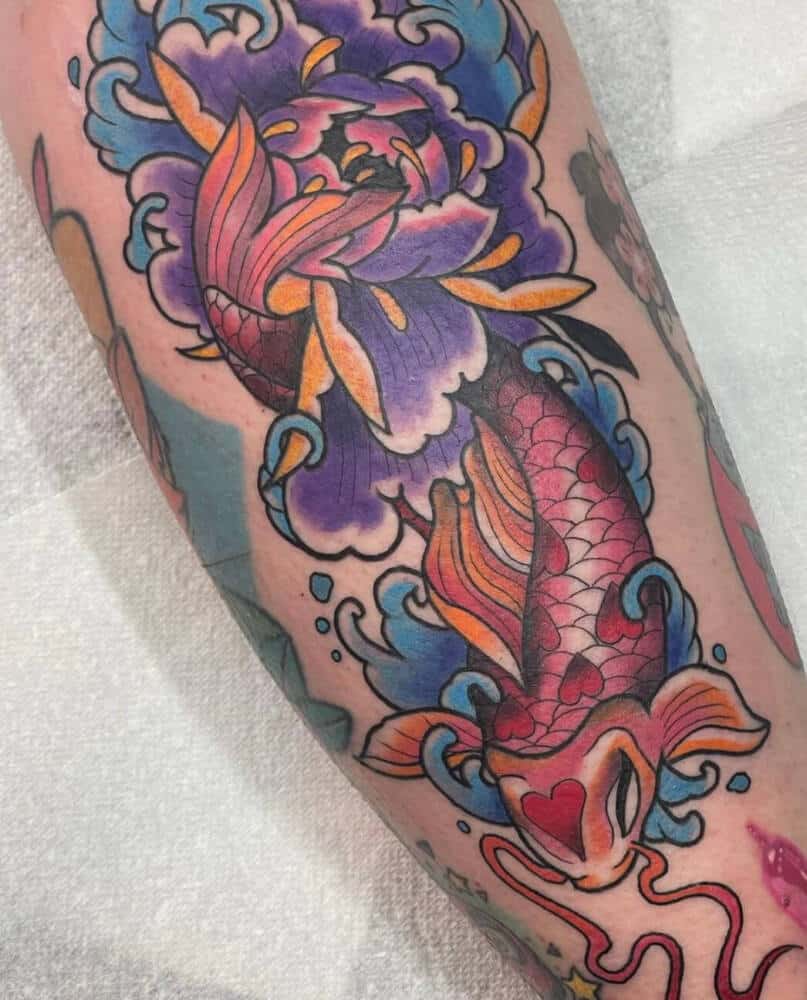

Koi fish tattoos carry profound symbolism, representing perseverance and determination. The image of a koi swimming upstream signifies the Yakuza’s journey of overcoming adversity, reflecting resilience and the ultimate triumph over challenges.
Yakuza Cherry Blossom Tattoos
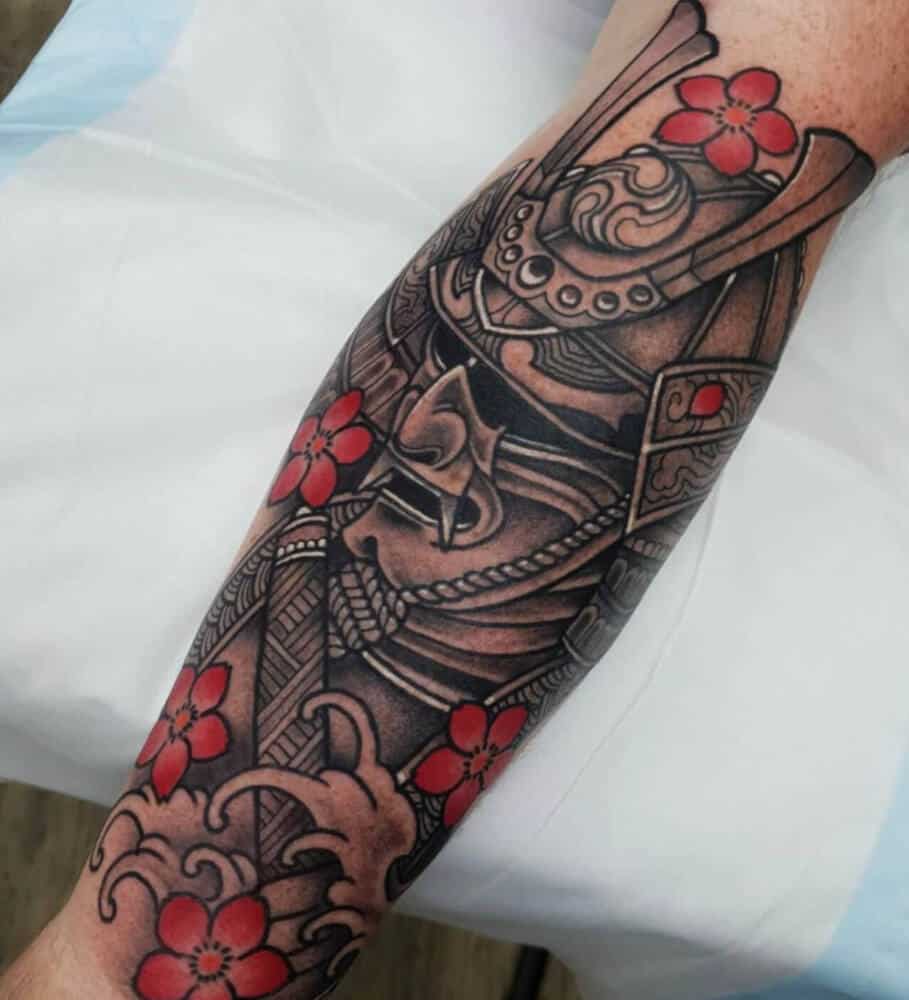
Cherry blossoms symbolize the transient nature of life. The Yakuza, like these blossoms, acknowledge the beauty and fragility of existence. This tattoo serves as a constant reminder of life’s impermanence and the need to cherish fleeting moments.
Yakuza Oni Mask Tattoos
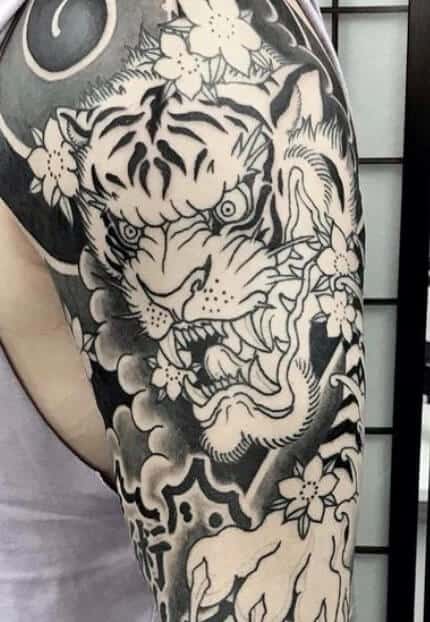
Oni mask tattoos depict a demon or ogre face and are chosen for their symbolic protection against evil spirits and enemies. These tattoos act as a visual warning to adversaries, representing the Yakuza’s readiness to confront and overcome malevolent forces.
Yakuza Peony Tattoos
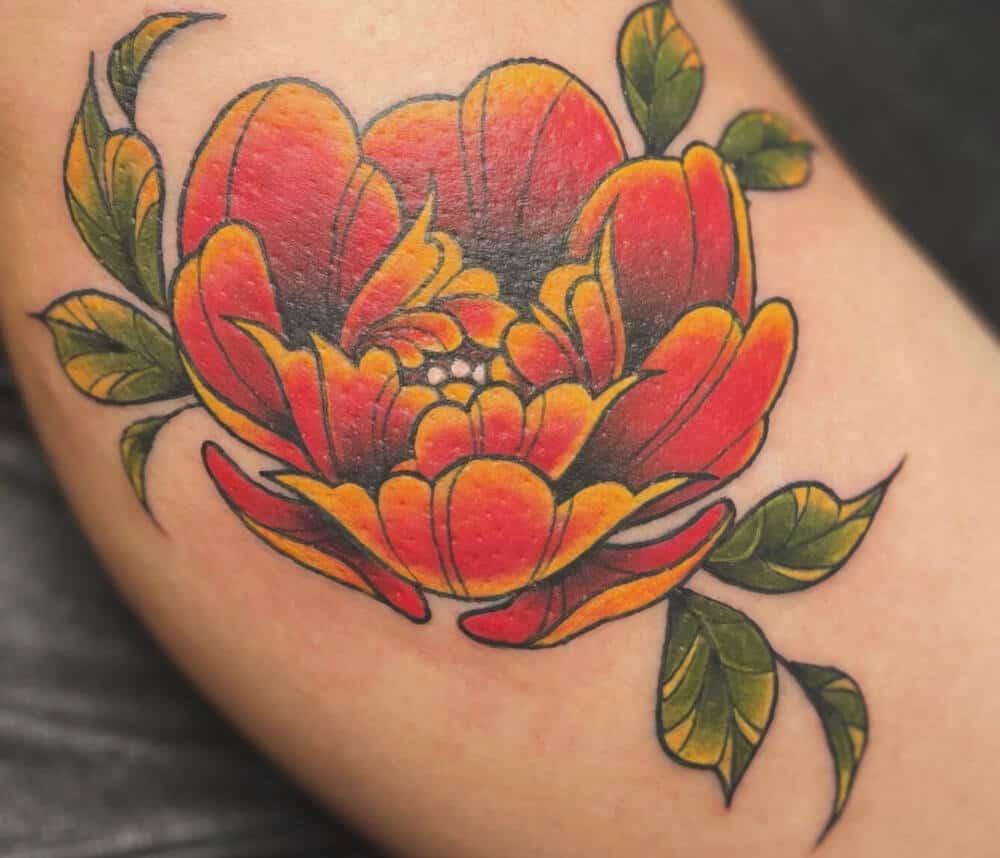
The peony, symbolizing wealth, prosperity, and good fortune, is often associated with bravery and honor. Yakuza members may wear peony tattoos to showcase their allegiance to a code of conduct that values not only power but also ethical principles.
Yakuza Chrysanthemum Tattoos
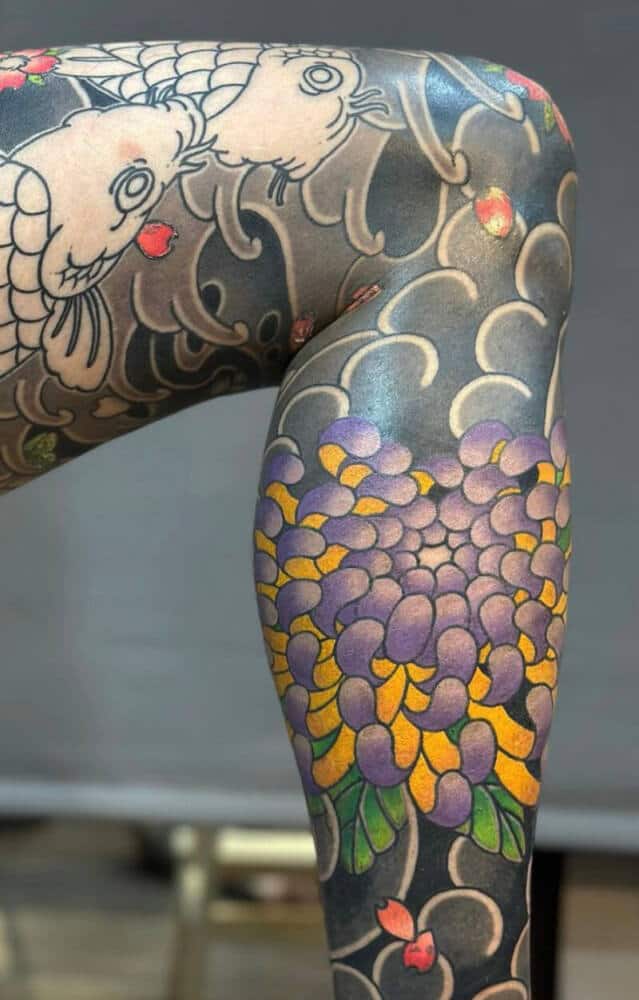
Drawing from imperial and samurai traditions, chrysanthemum tattoos symbolize longevity, rejuvenation, and nobility. Yakuza members with these tattoos may see themselves as upholding a noble way of life, even within the confines of a criminal organization.
Yakuza Tiger Tattoos
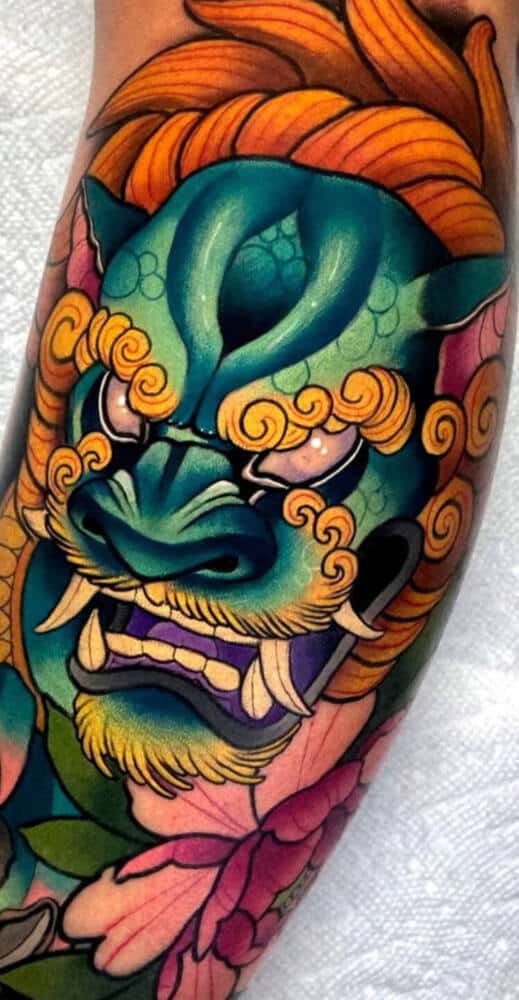
Tiger tattoos signify strength, courage, and fearlessness. Yakuza members use these tattoos as a protective shield against harm, projecting an image of invincibility and resilience in the face of challenges.
Yakuza Snake Tattoos
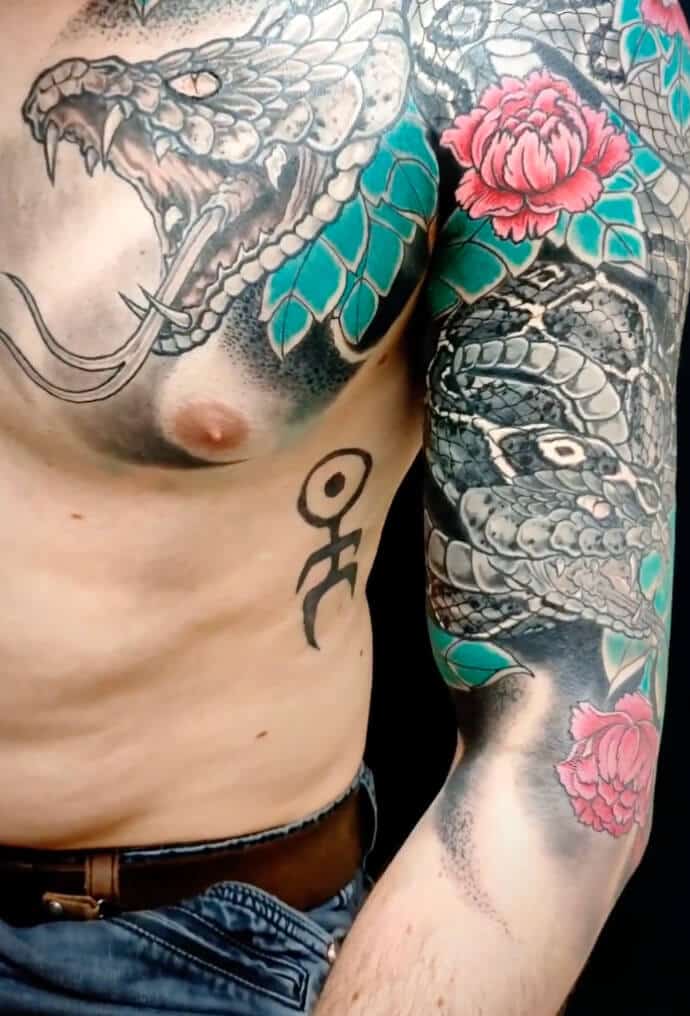
Representing transformation, rebirth, and healing, snake tattoos also convey traits of cunning and adaptability. The snake serves as a symbol of the Yakuza’s ability to navigate the intricate web of the criminal underworld with strategic acumen.
Yakuza Skull Tattoos
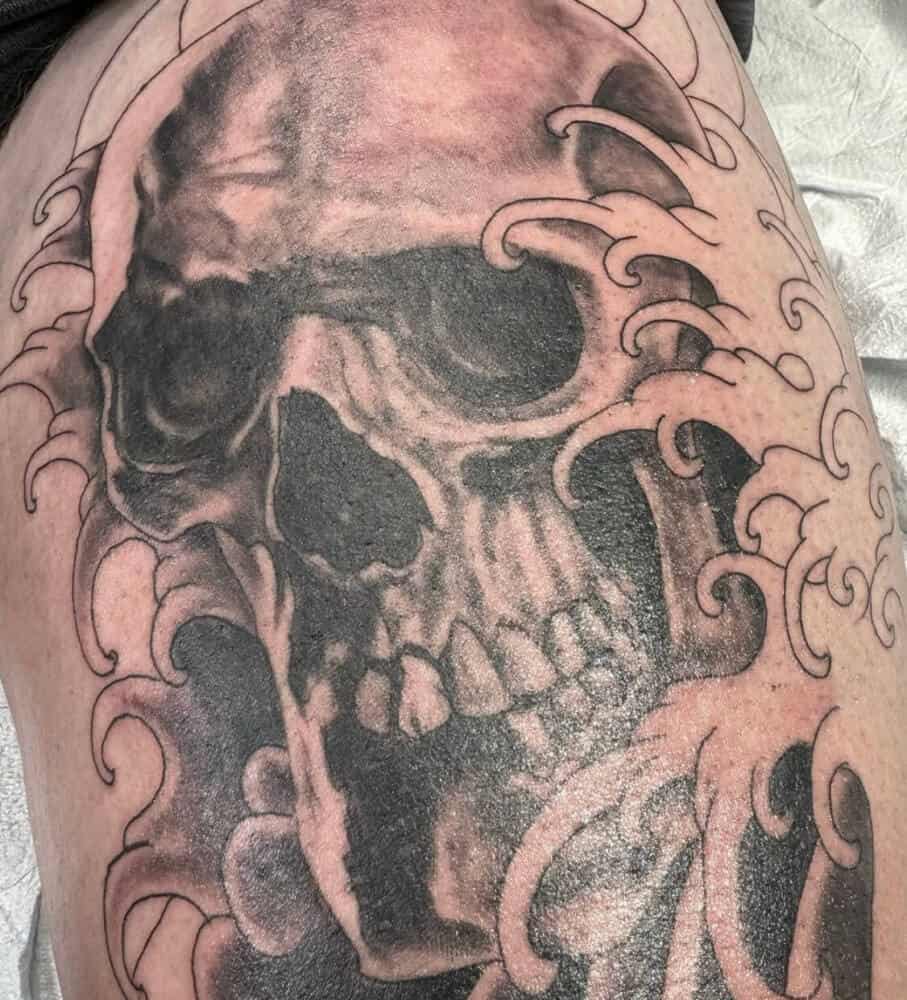
Skull tattoos represent the transience of life and the inevitability of death. Yakuza members with skull tattoos may embrace the idea of living on the edge and acknowledge the risks associated with their dangerous lifestyle.
Yakuza Carp Tattoos
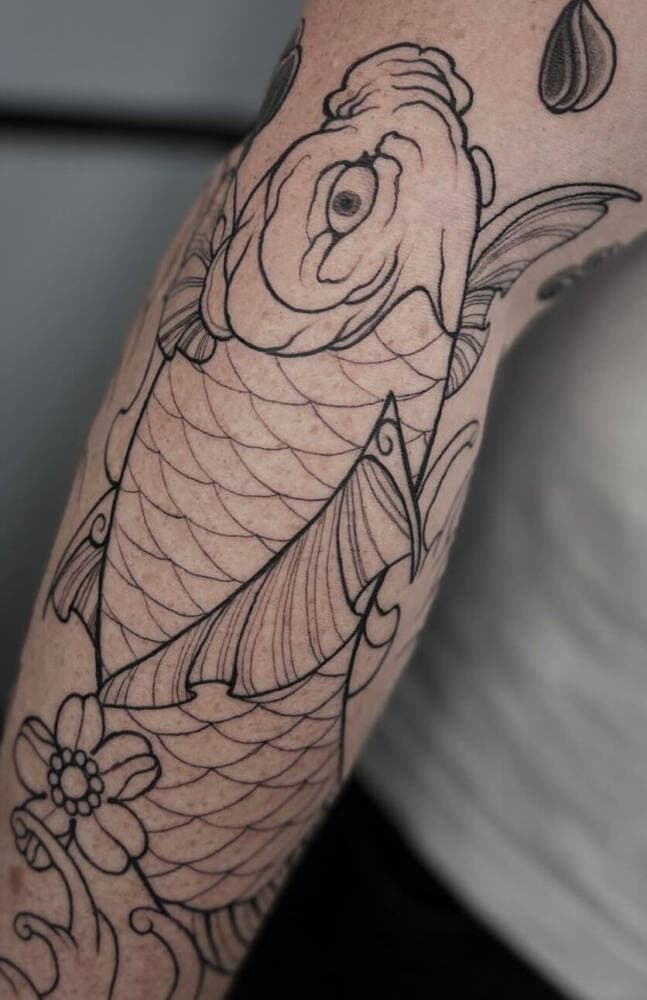
Similar to koi fish, carp tattoos symbolize determination and perseverance. Choosing to swim upstream against adversity, Yakuza members with carp tattoos embody the relentless pursuit of their goals, even when faced with challenges.
Yakuza Samurai Tattoos
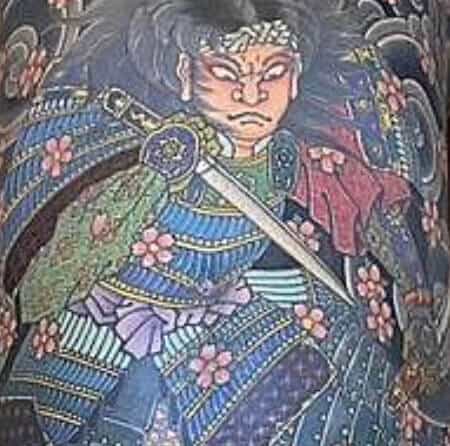
Samurai tattoos represent honor, loyalty, and the way of the warrior. These tattoos often feature traditional samurai armor and weaponry, symbolizing a commitment to a code of conduct that values principles of integrity and duty.
Yakuza Geisha Tattoos
Geisha tattoos symbolize beauty, mystery, and the transient nature of life. Yakuza members with geisha tattoos may see themselves as connoisseurs of not just power but also the refined aspects of traditional arts and culture.
Yakuza Wave Tattoos
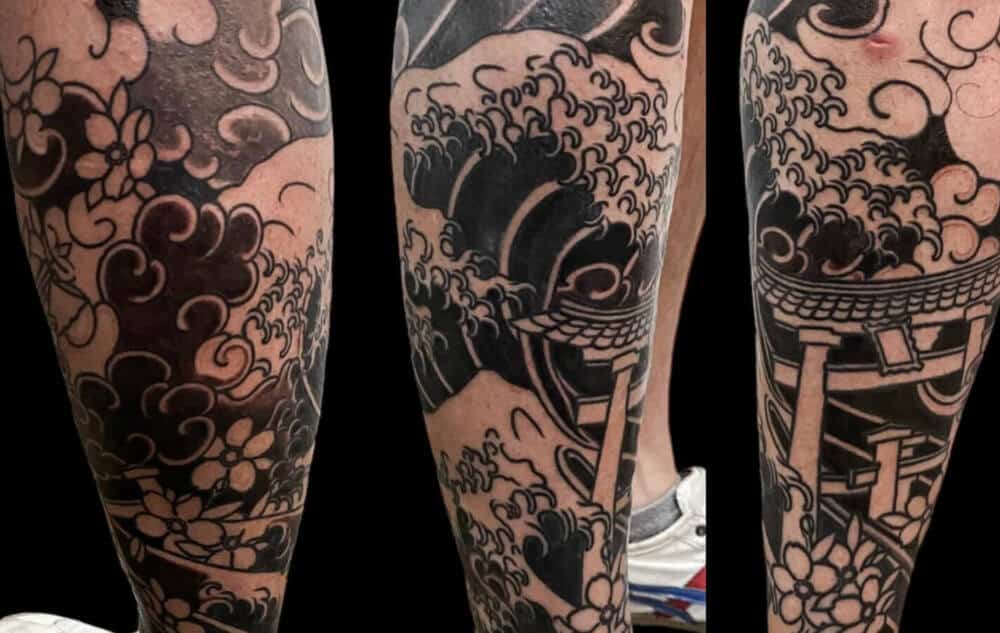
Wave tattoos represent the ebb and flow of life. Yakuza members use these tattoos to symbolize the unpredictable nature of their lifestyle, emphasizing adaptability to the ever-changing currents of the criminal underworld.
Yakuza Shi-shi (Guardian Lion) Tattoos
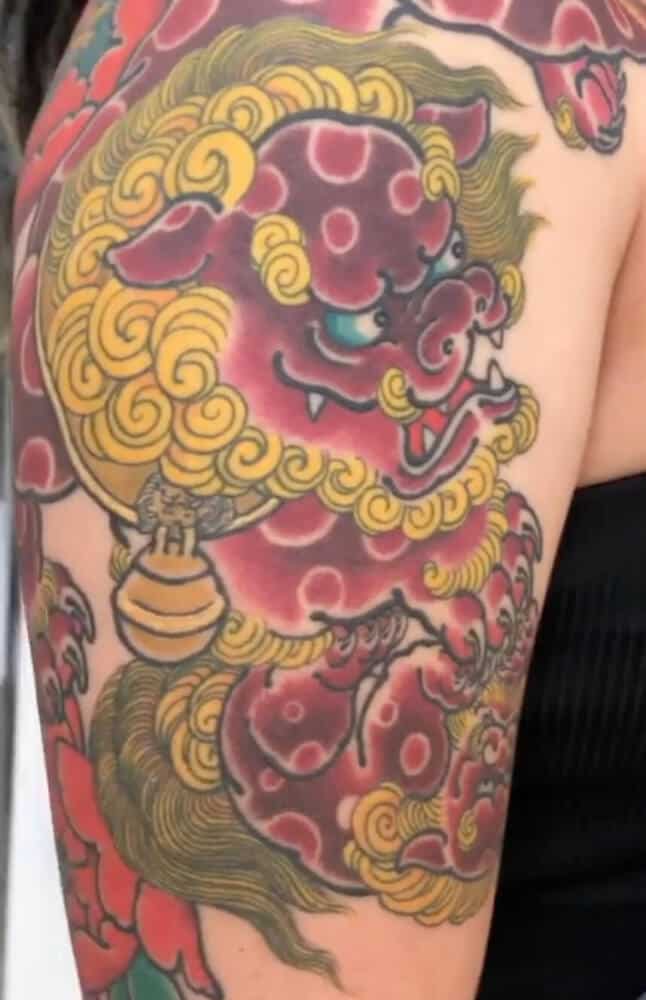
Shi-shi tattoos symbolize protection and guardianship. Placed at the entrance of traditional Japanese buildings, Yakuza members adopt these tattoos to convey a sense of safeguarding their territory and interests.
Yakuza Hannya Mask Tattoos
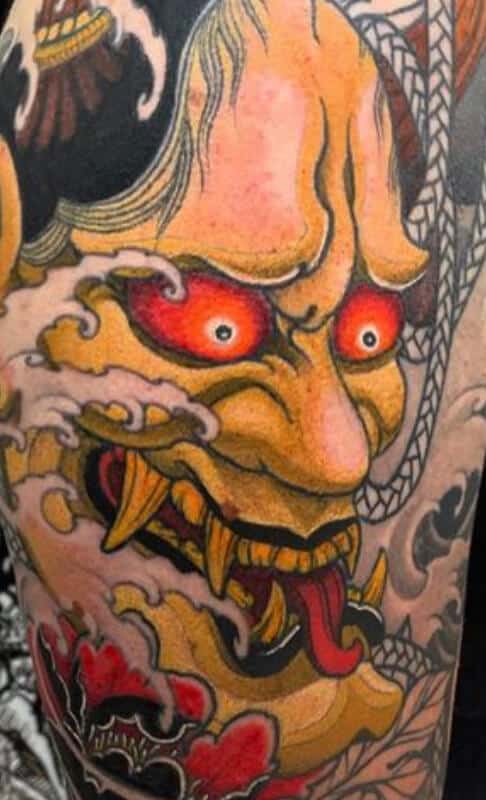
Hannya mask tattoos depict a jealous, female demon, representing inner conflict and the constant struggle against negative emotions. Yakuza members may use these tattoos to showcase the psychological battles they face within their tumultuous lives.
Yakuza Tattooing Techniques
Tebori, the hand-poked tattooing method, holds significant cultural value in Yakuza tradition. The evolution of tattooing techniques over time reflects changes in Yakuza culture.
At the heart of Yakuza tattoo culture lies the ancient art of tebori, a traditional hand-poked tattooing method. Tebori, which translates to “hand-carving,” involves skilled tattoo artists using a set of sharpened needles attached to a rod to manually puncture the skin.
This meticulous and labor-intensive technique has deep cultural significance within the Yakuza, serving as a rite of passage and a symbol of commitment to the organization.
Tebori allows for greater control over the depth and precision of each stroke, resulting in intricate and vibrant designs.
Beyond its artistic merits, tebori represents a connection to the past, harkening back to a time when tattoos were earned through endurance and pain.
While modern tattoo machines have gained popularity, tebori remains a revered tradition, embodying the enduring spirit and resilience that define the Yakuza subculture.
The evolution of Yakuza tattooing techniques showcases a delicate balance between preserving tradition and adapting to contemporary methods.
Yakuza Tattoos as a Symbol of Status
The correlation between Yakuza hierarchy and tattoos is evident, with irezumi playing a pivotal role in defining Yakuza identity. Stories and legends further amplify the significance of specific tattoos.
Hidden Meanings Behind Yakuza Tattoos
Yakuza tattoos often conceal secret messages and codes, serving as a visual narrative of personal and criminal history. These inked illustrations also convey loyalty and allegiance within the clandestine world of the Yakuza.
The Controversy Surrounding Yakuza Tattoos
In modern Japanese culture, Yakuza tattoos carry legal implications and societal perceptions. Distinguishing between Yakuza and non-Yakuza tattoo enthusiasts remains a challenge, leading to efforts to shed light on the nuances of this intricate art.
Conclusion
In conclusion, Yakuza tattoos endure as a captivating blend of cultural, historical, and artistic significance. As visual narratives etched on skin, they continue to weave tales of a clandestine world, inviting intrigue and admiration for the intricate tapestry of Yakuza identity.
My writing focuses on the various aspects of Japanese lifestyle, from traditional tea ceremonies and flower arrangement to modern fashion trends and pop culture. Through my articles, I aim to share my passion for Japan and provide readers with a glimpse into the rich and diverse world of Japanese culture.
I believe that the key to understanding Japanese lifestyle is to appreciate the balance between tradition and innovation. While Japan has a rich cultural heritage that dates back centuries, it is also a country that is constantly evolving and embracing new ideas and technologies.
Whether you’re interested in learning about the latest fashion trends in Tokyo, or want to explore the ancient art of calligraphy, my writing will take you on a journey through the many facets of Japanese lifestyle. So join me as we explore the beauty and complexity of this fascinating culture together!


